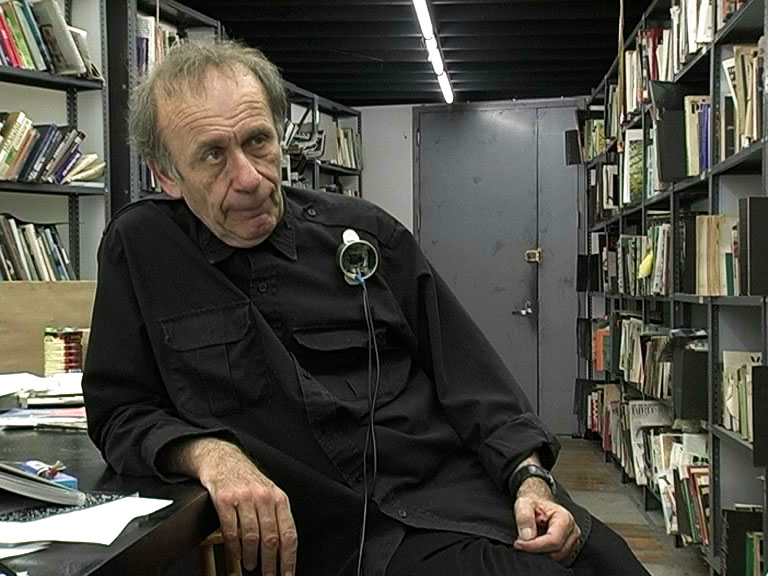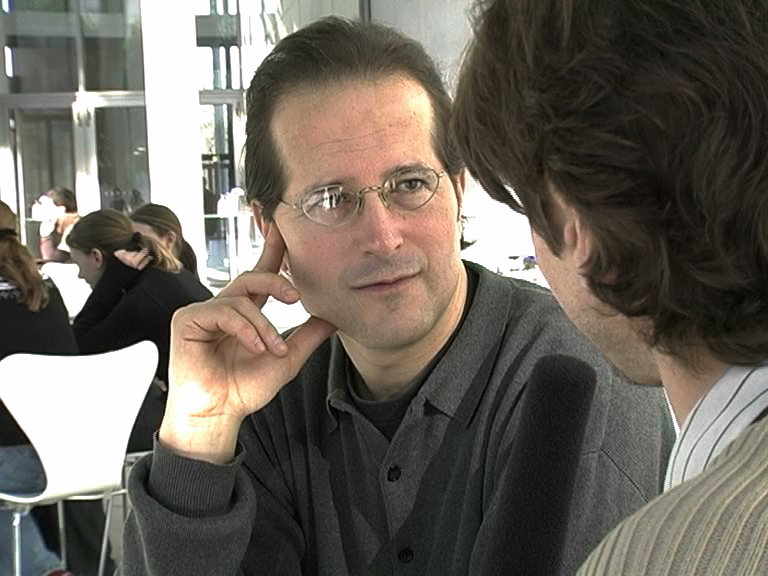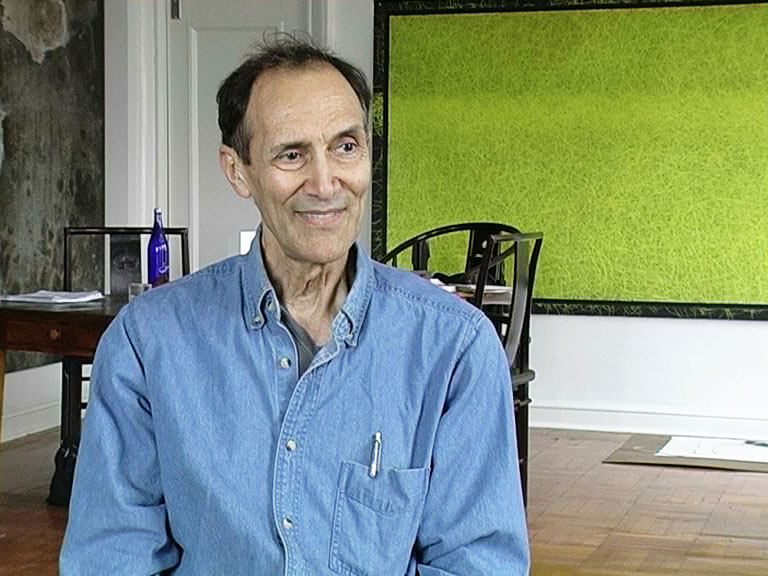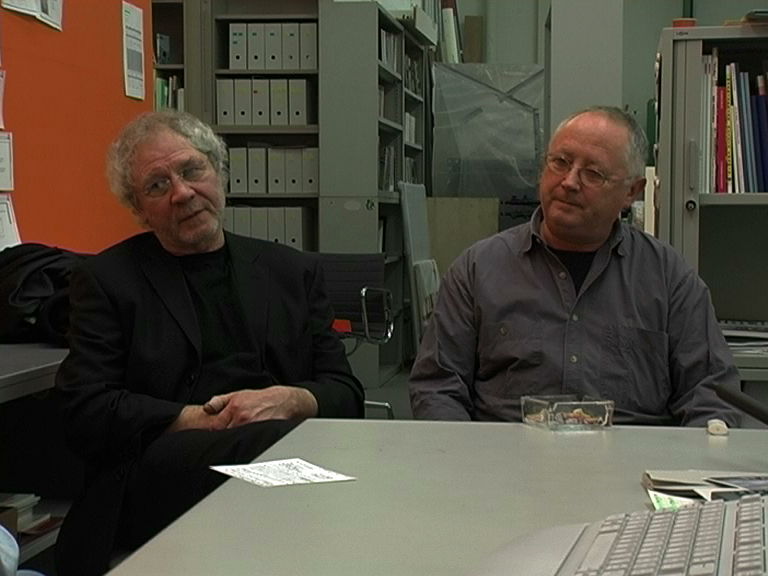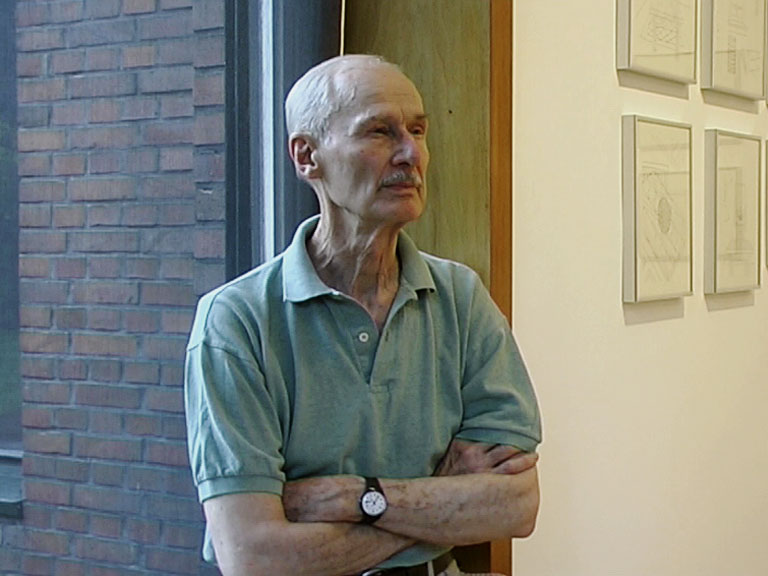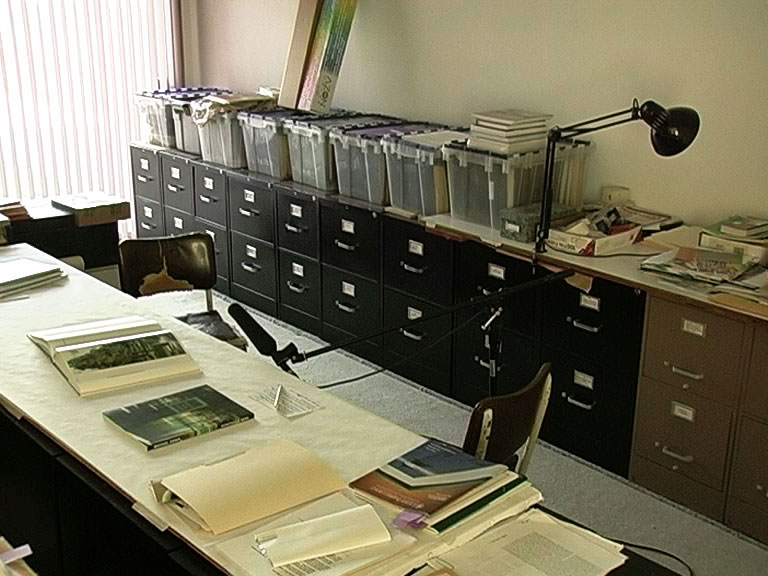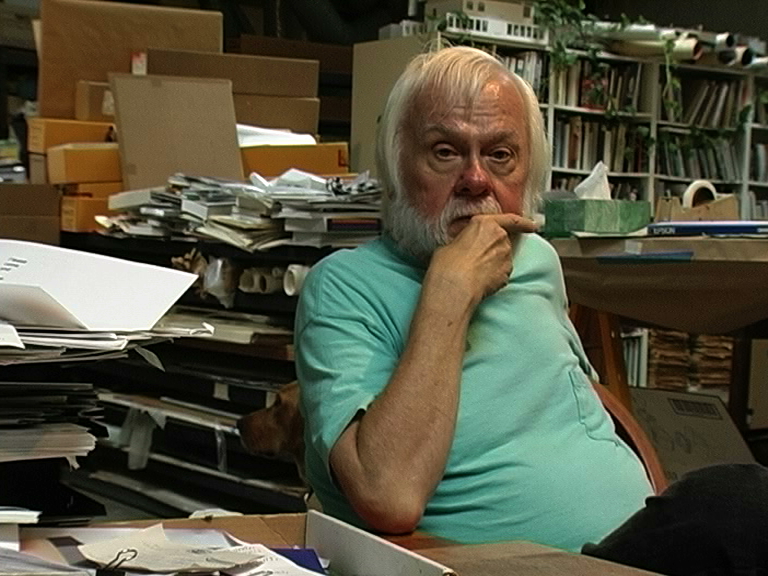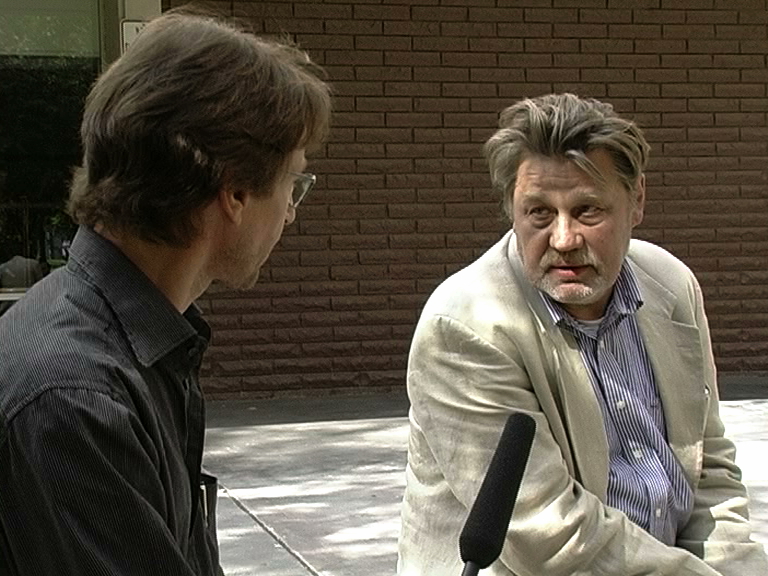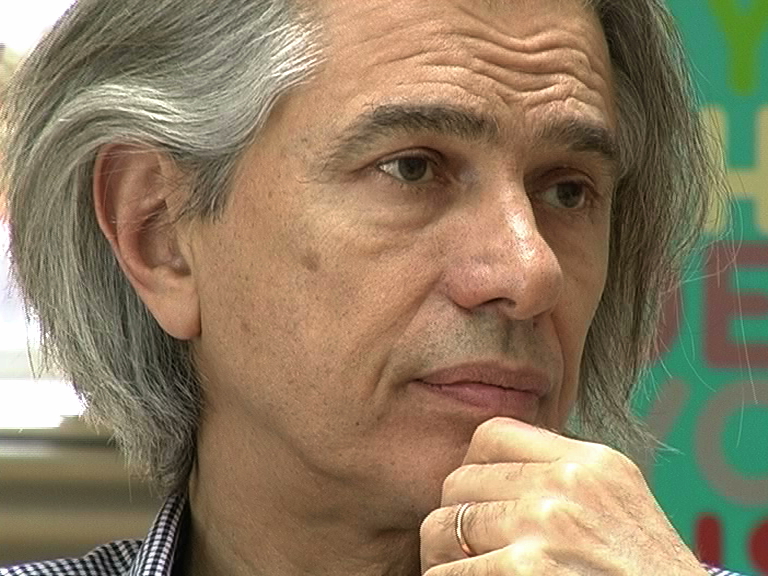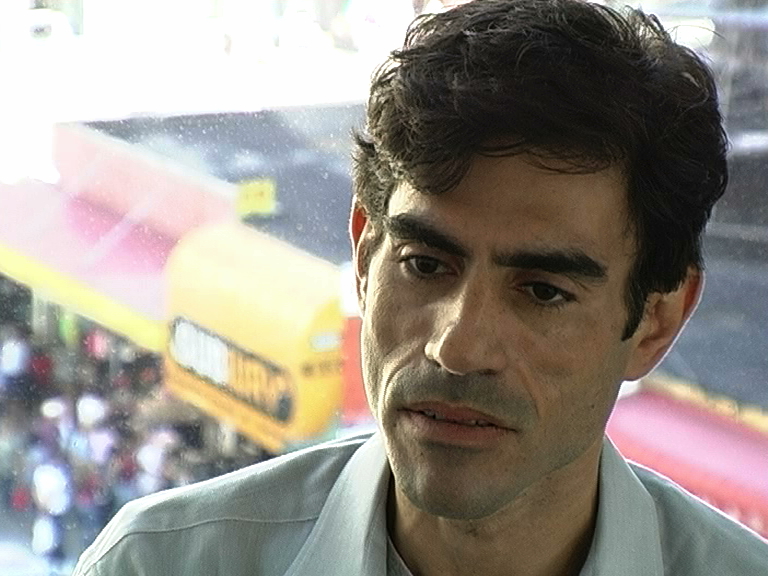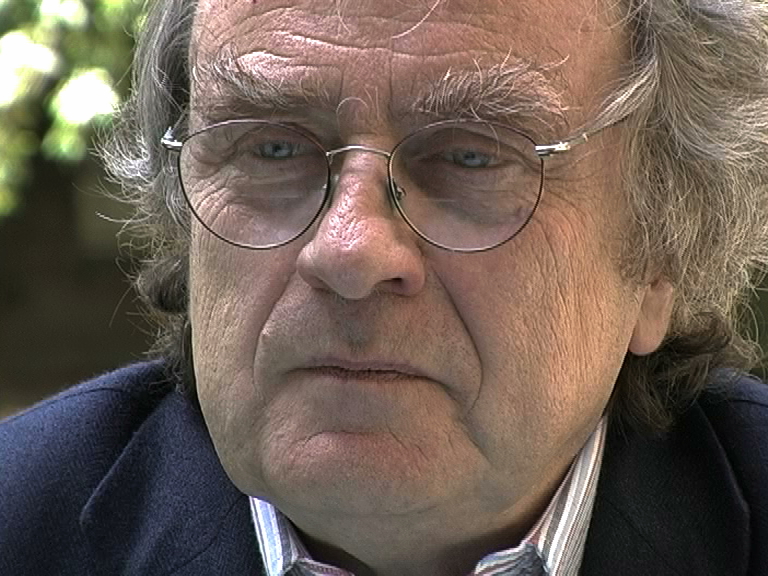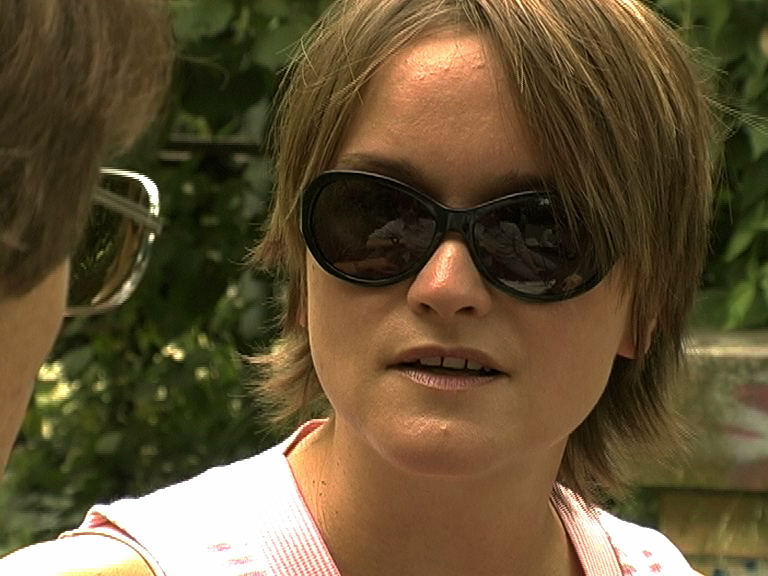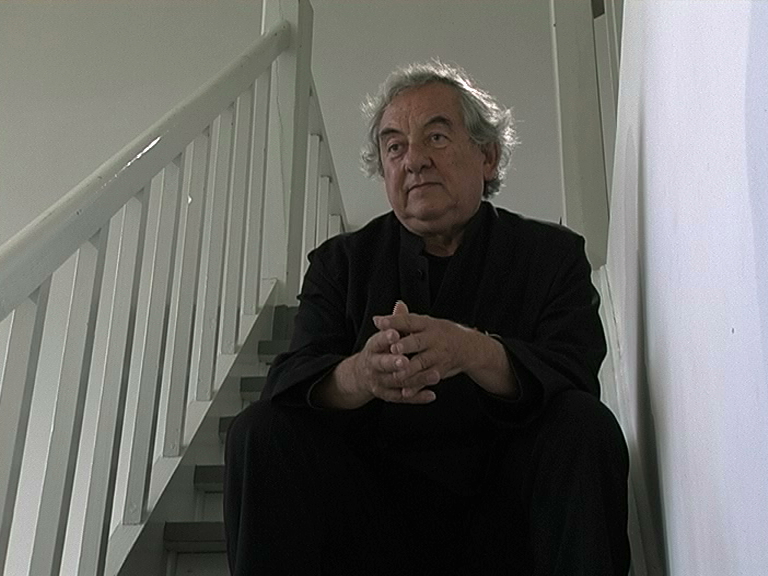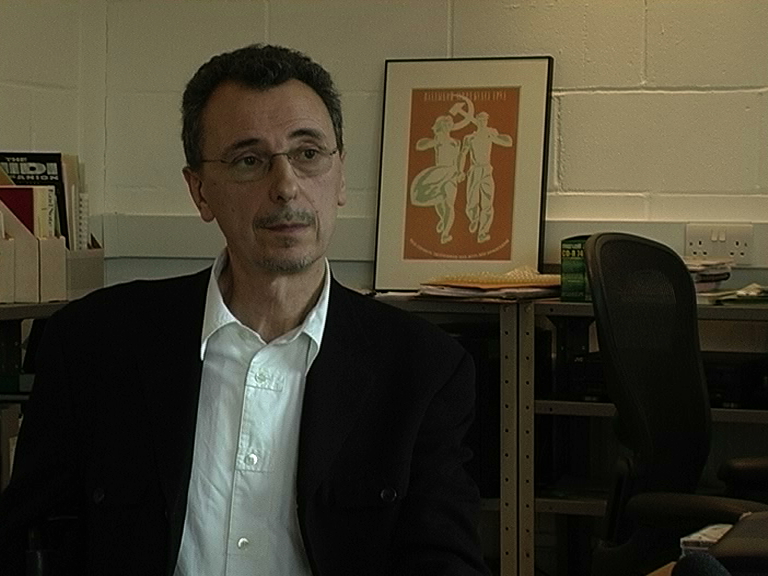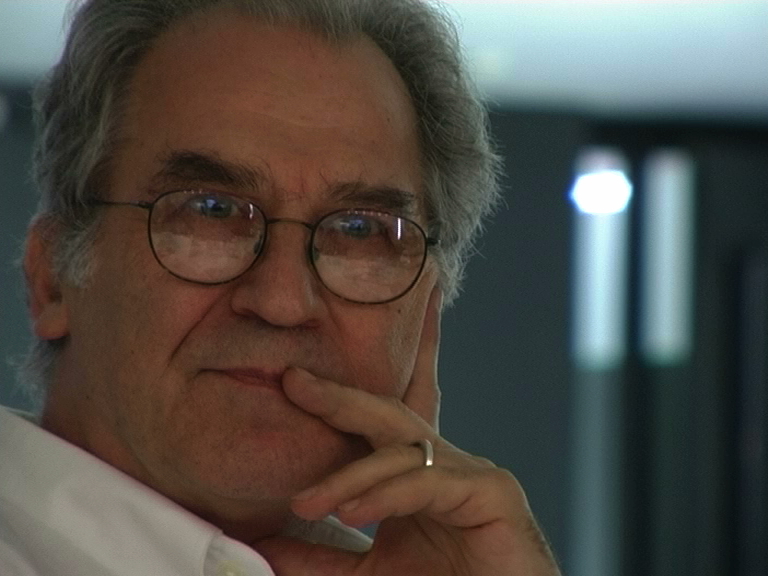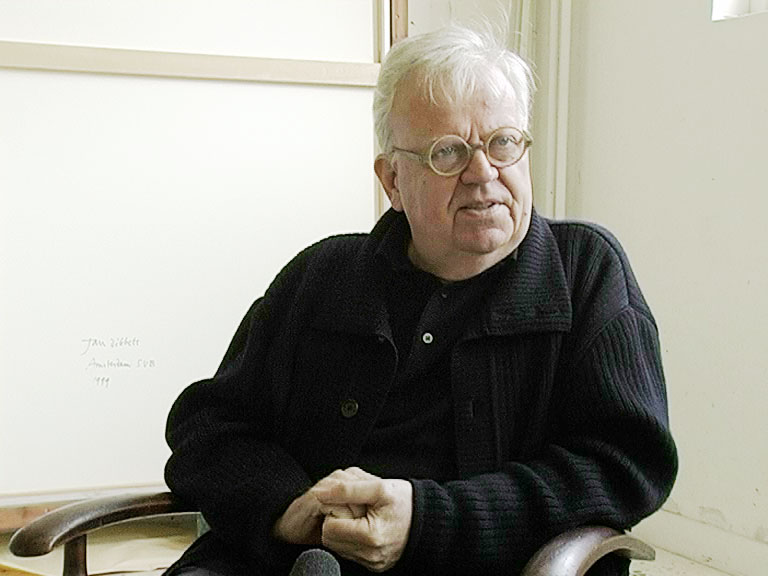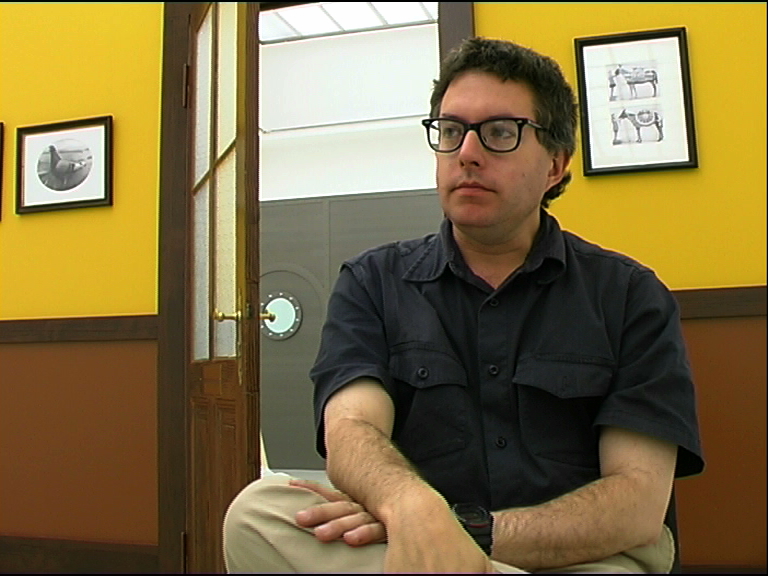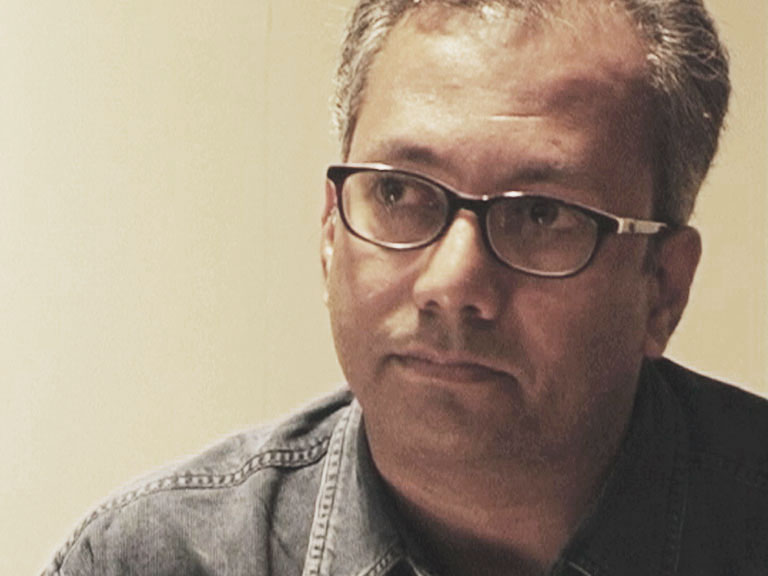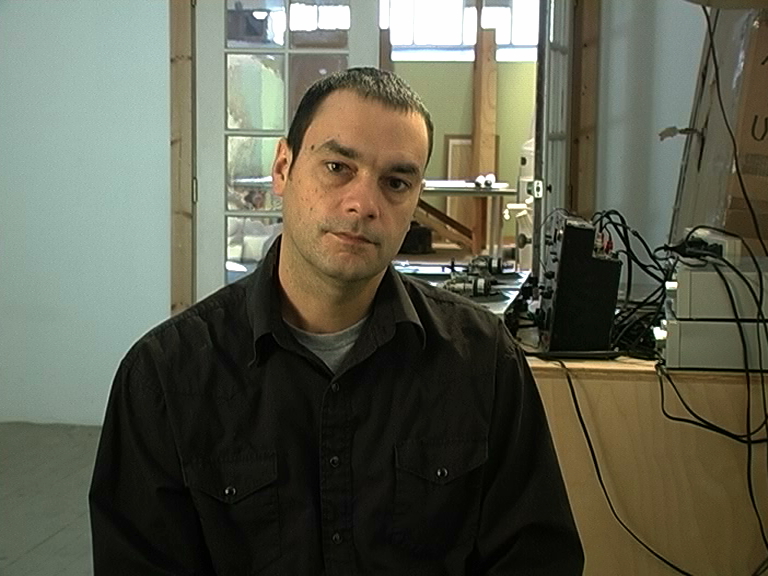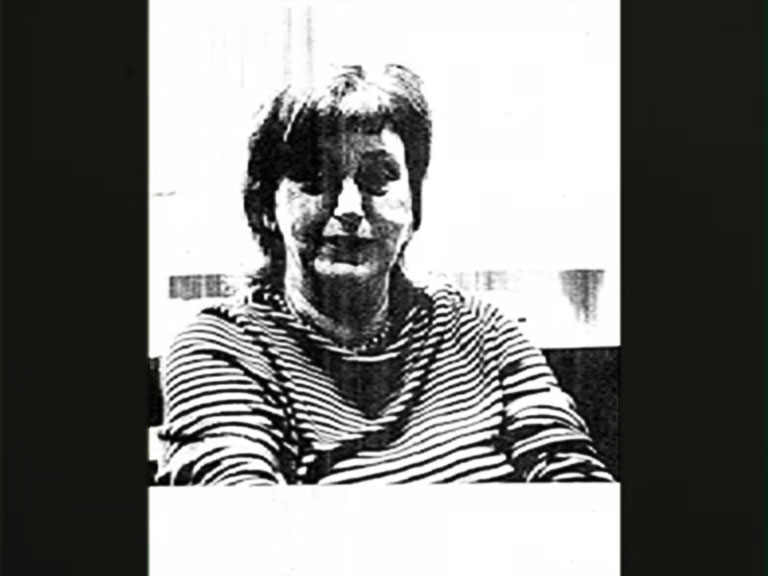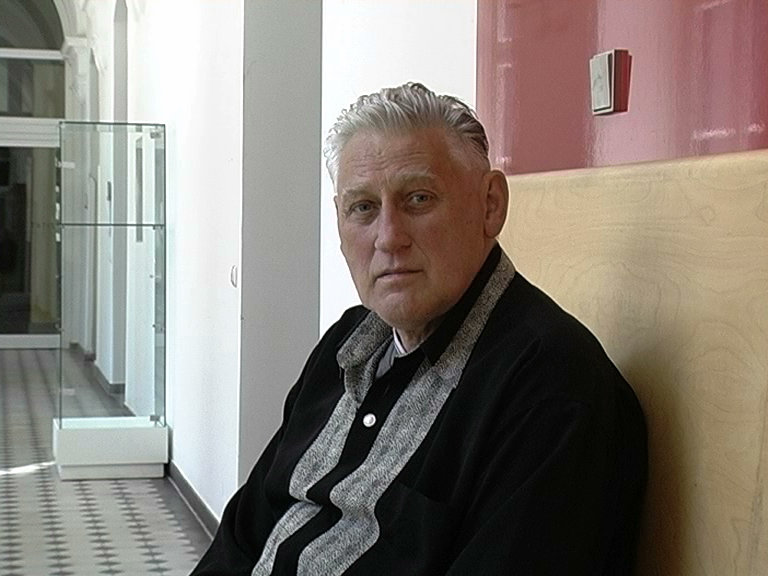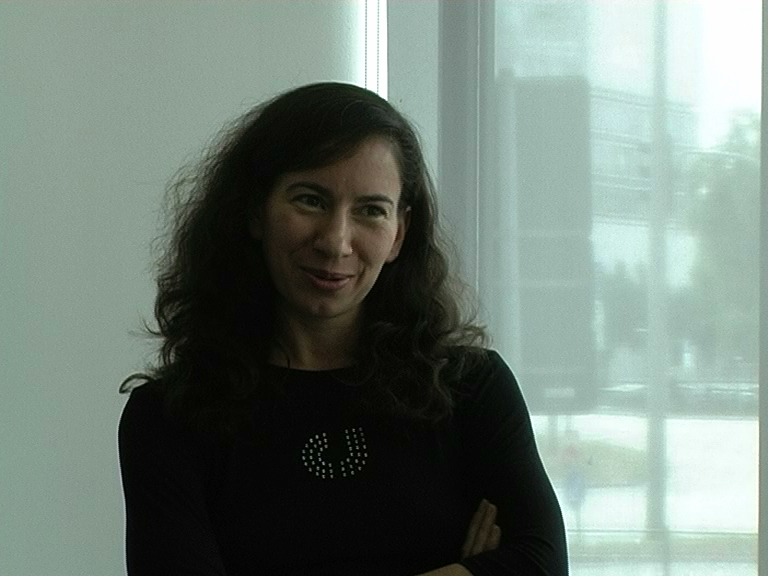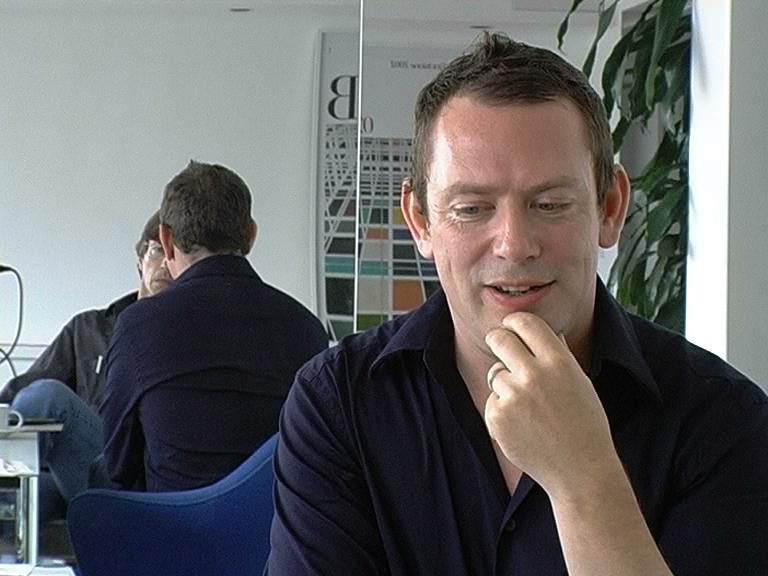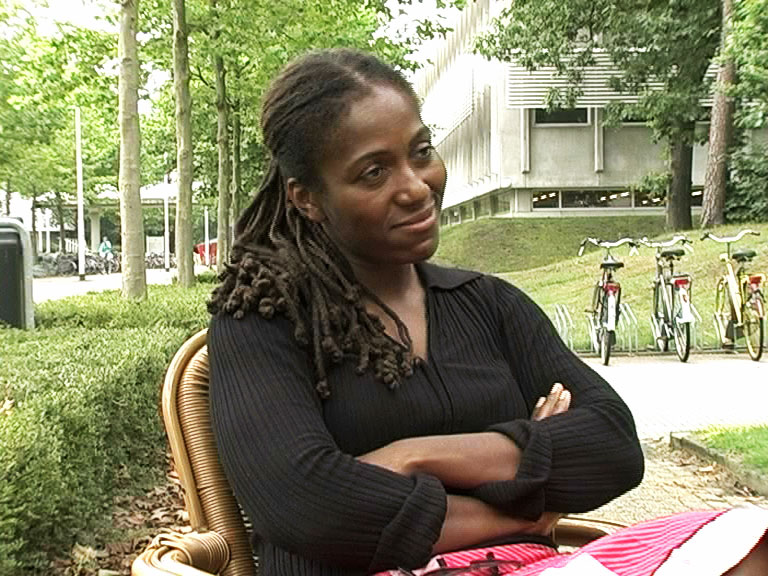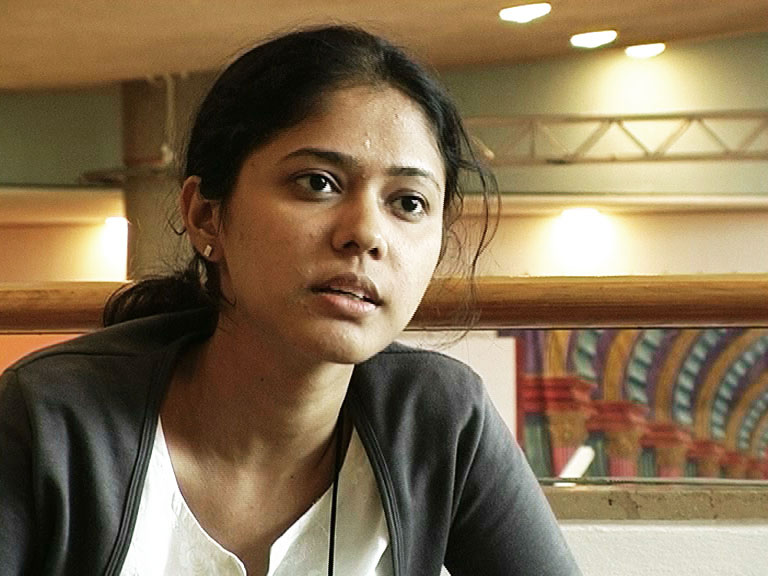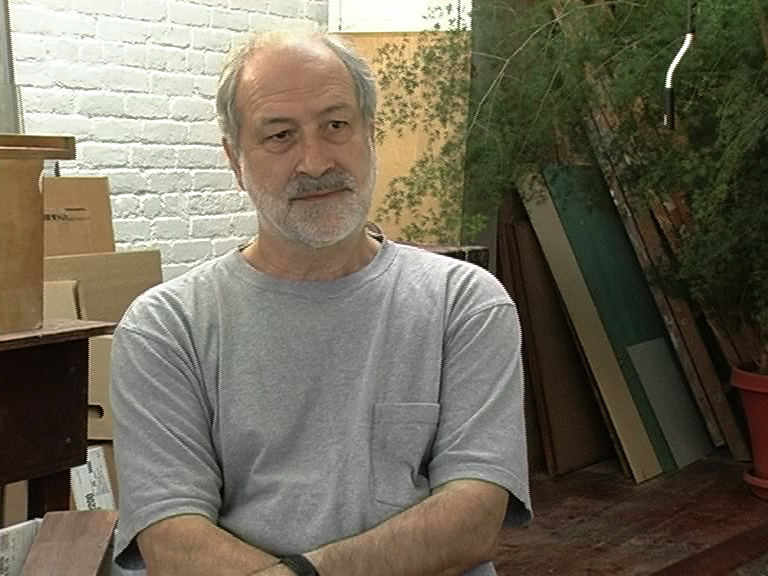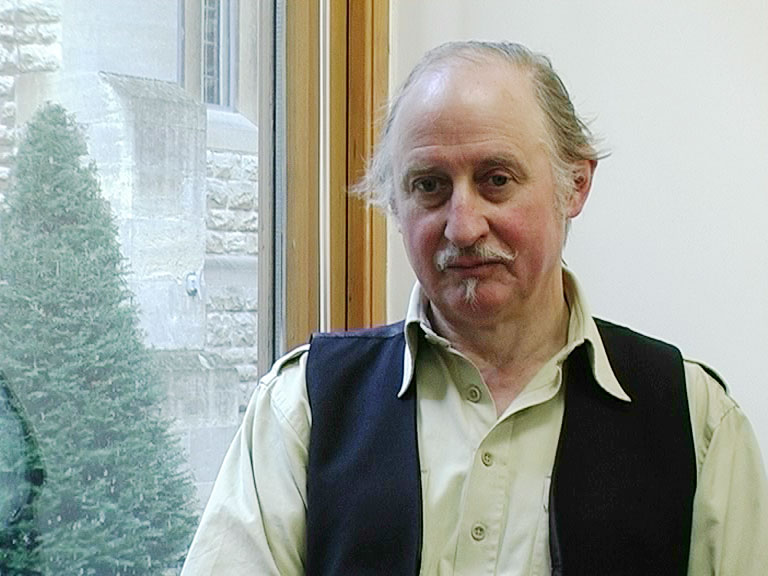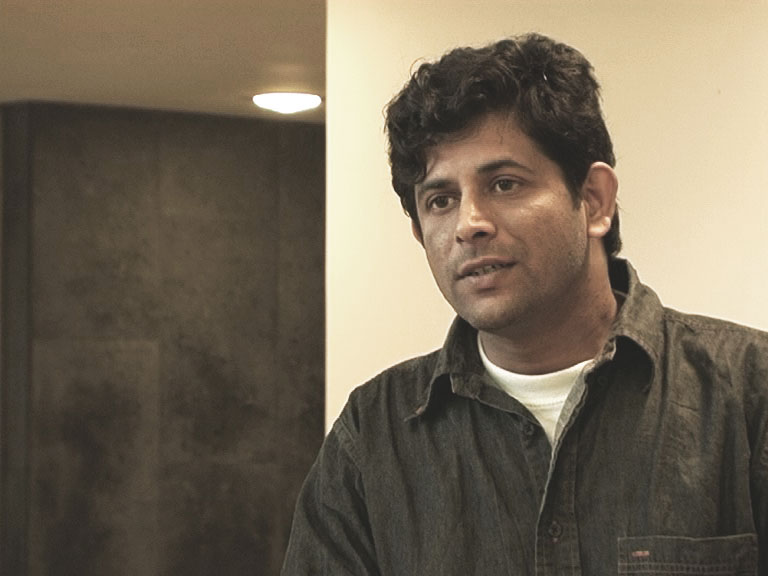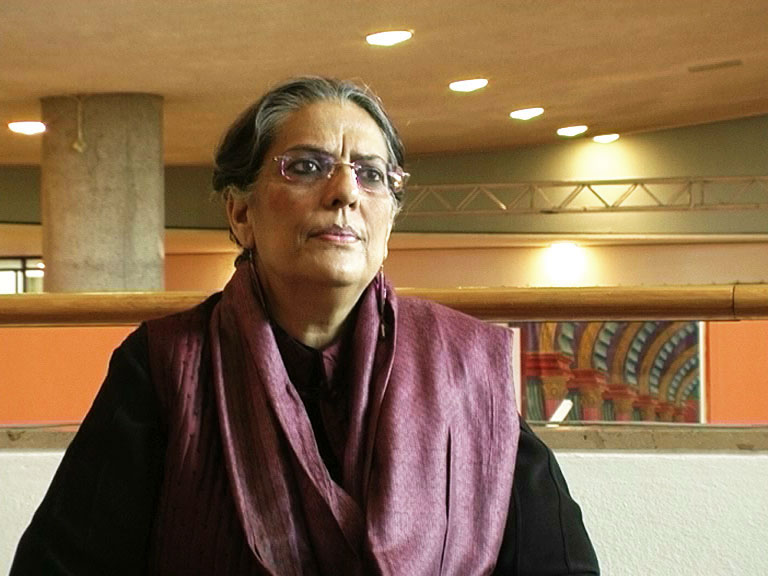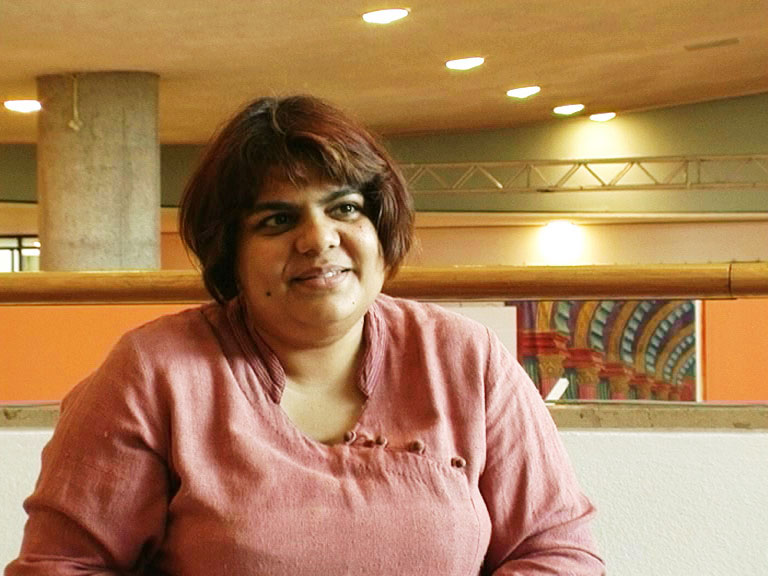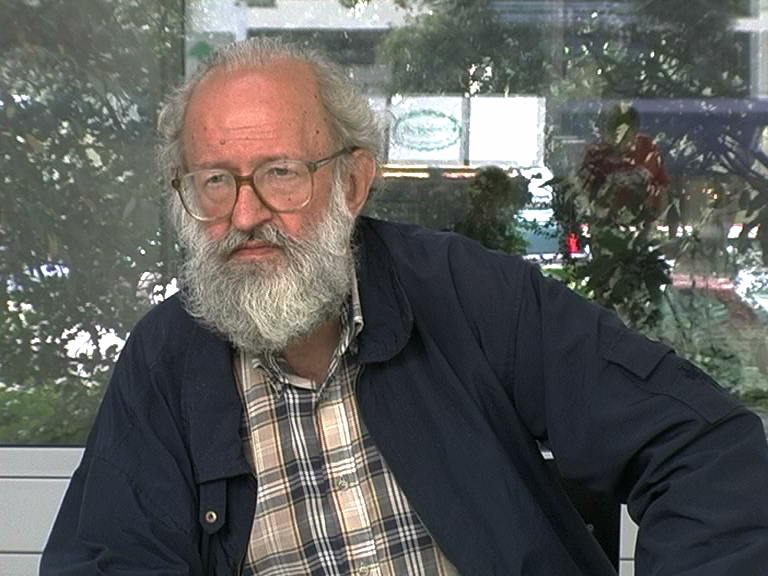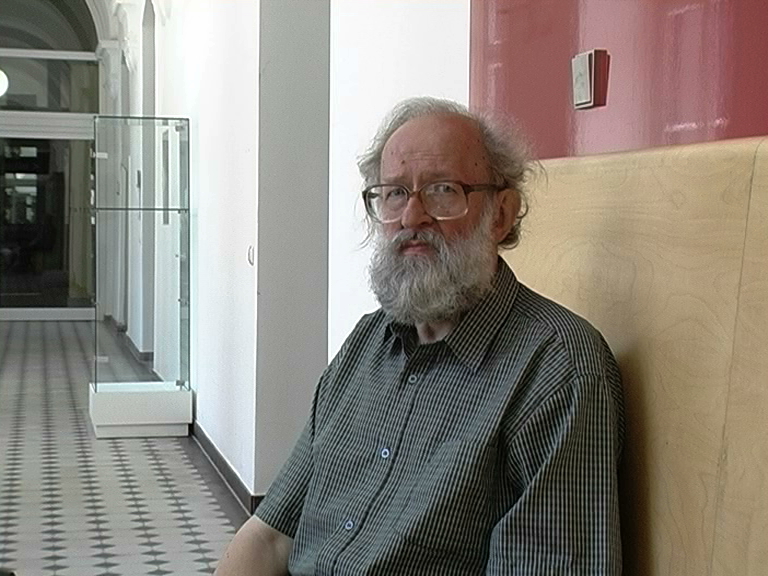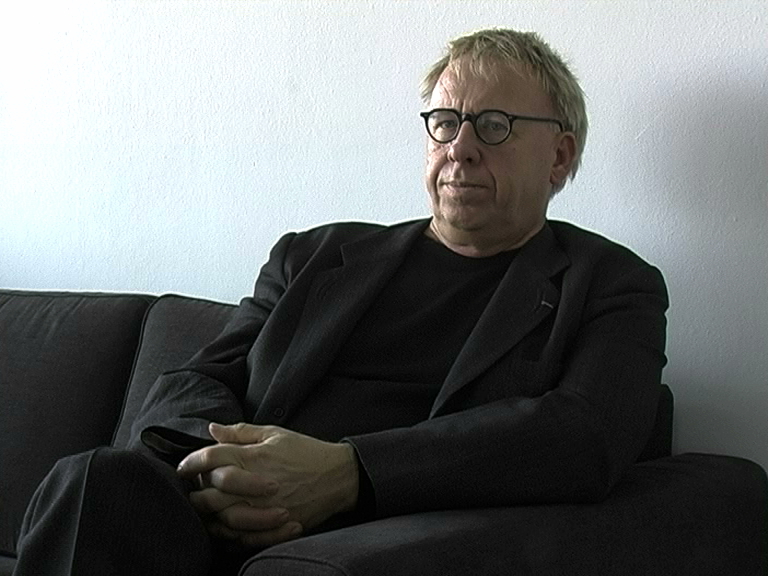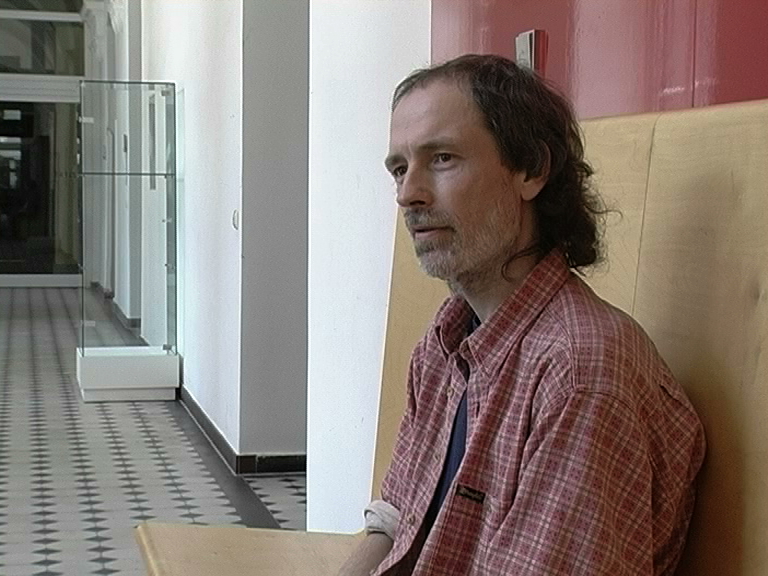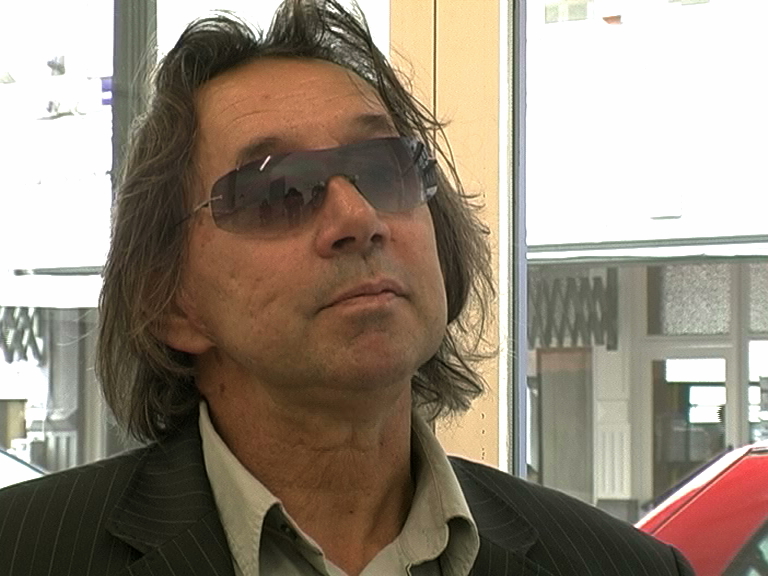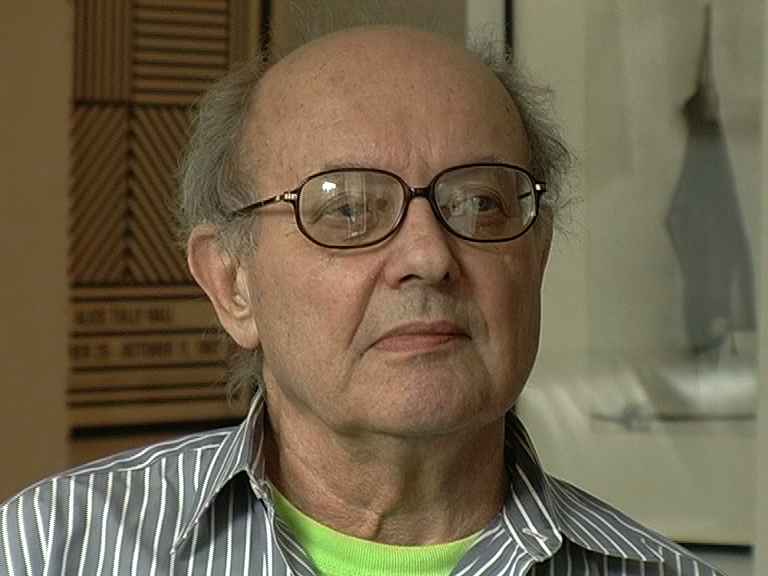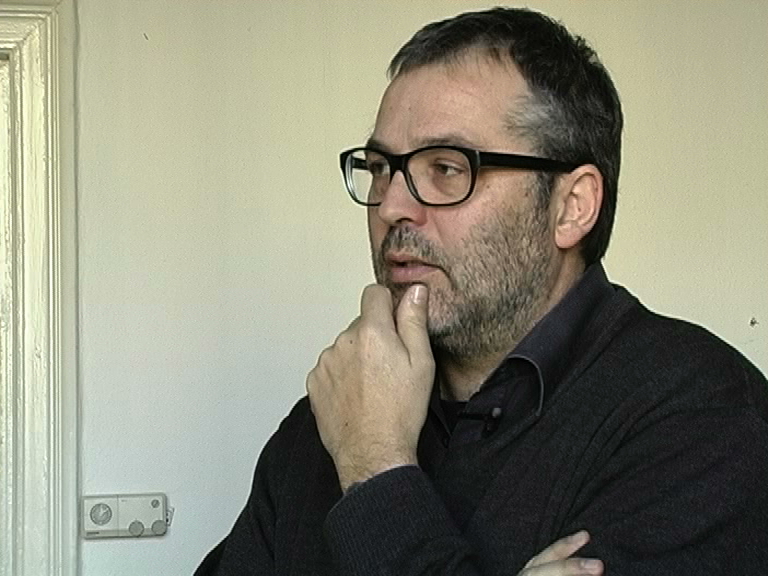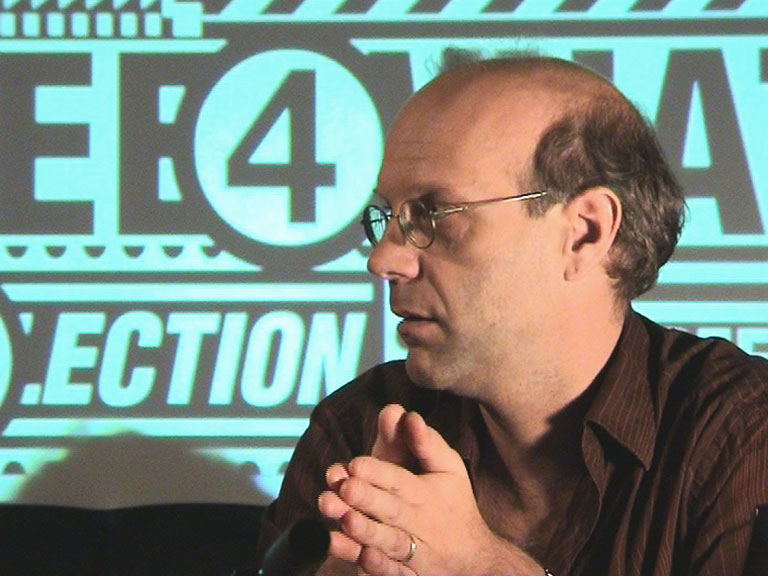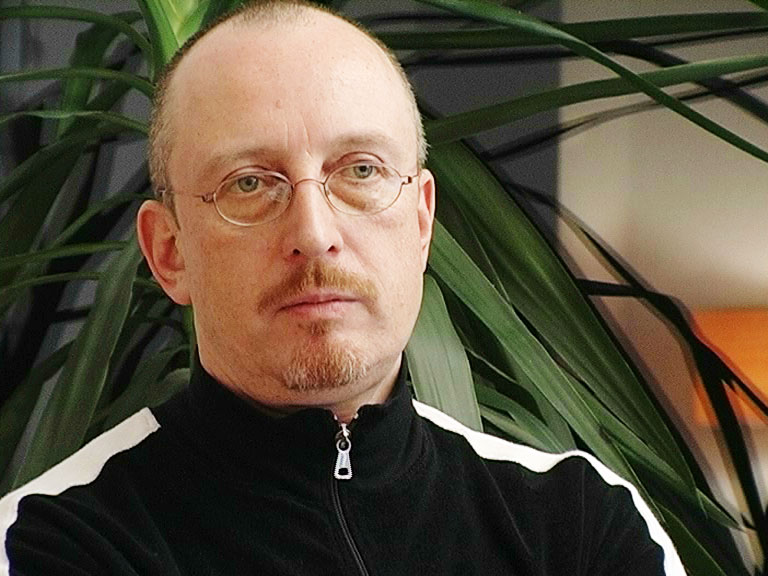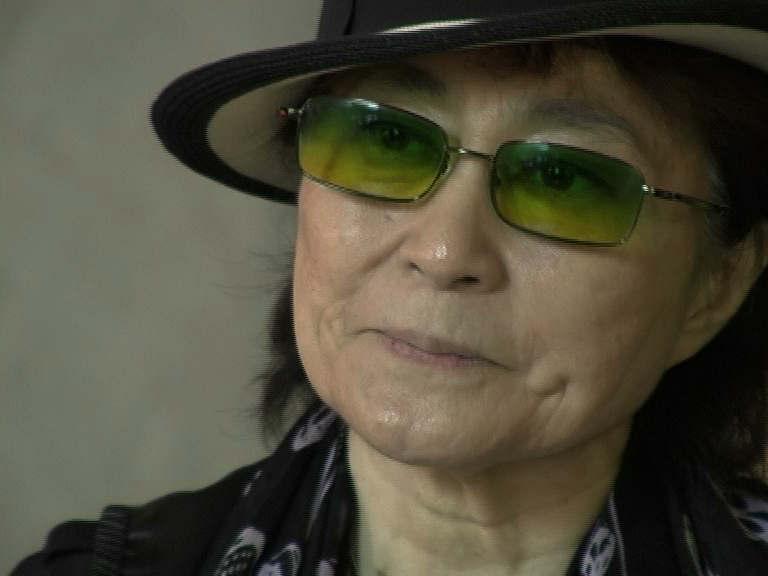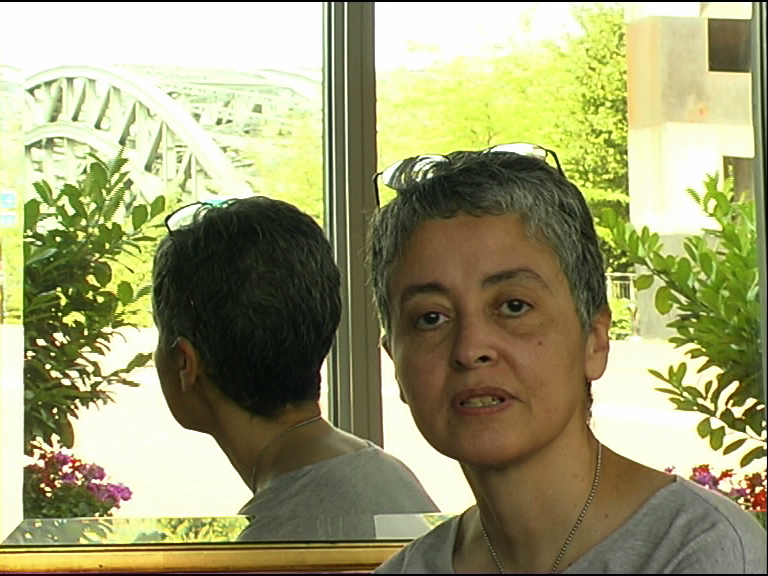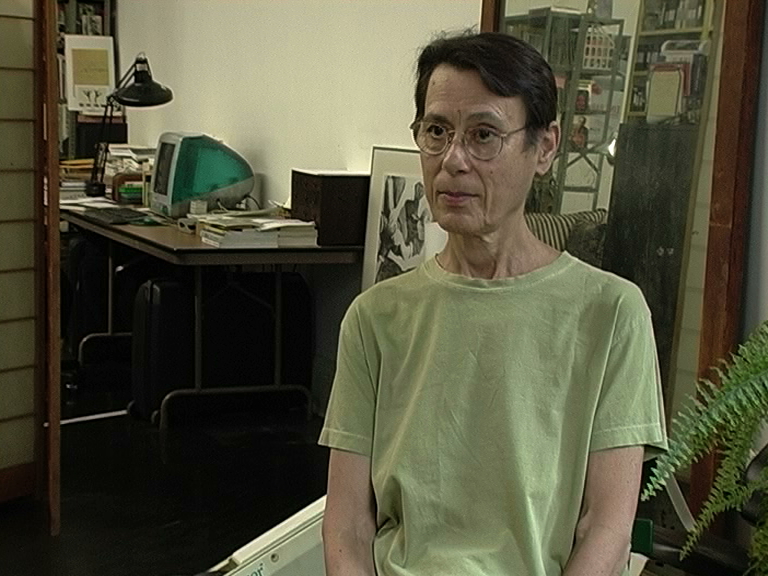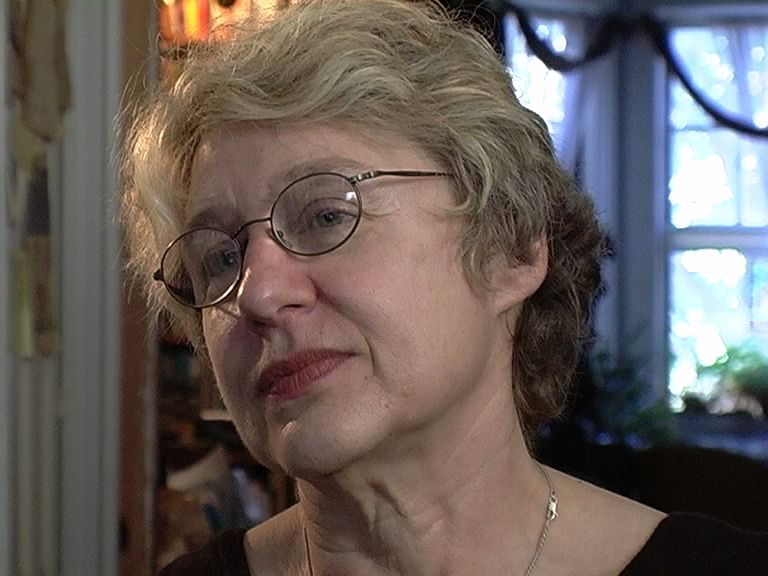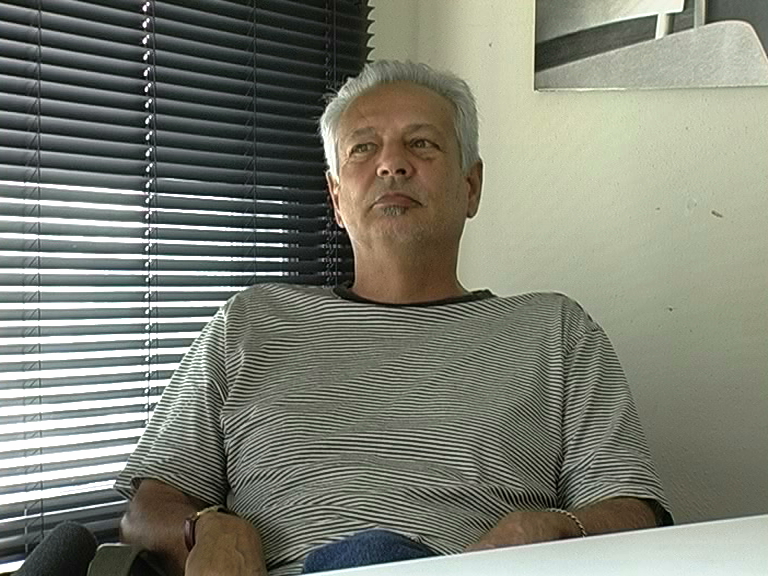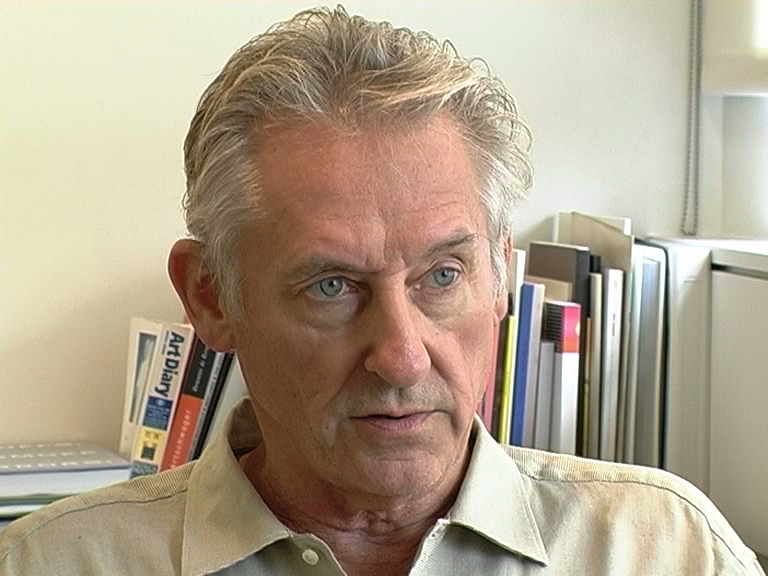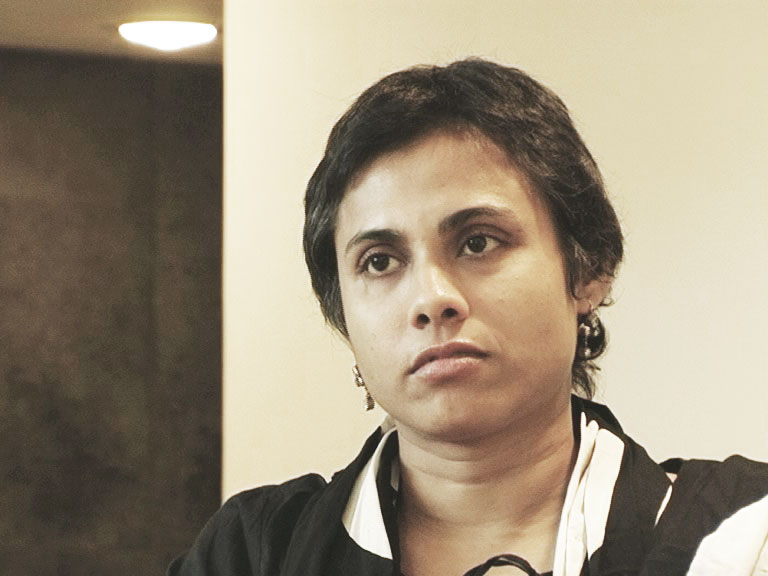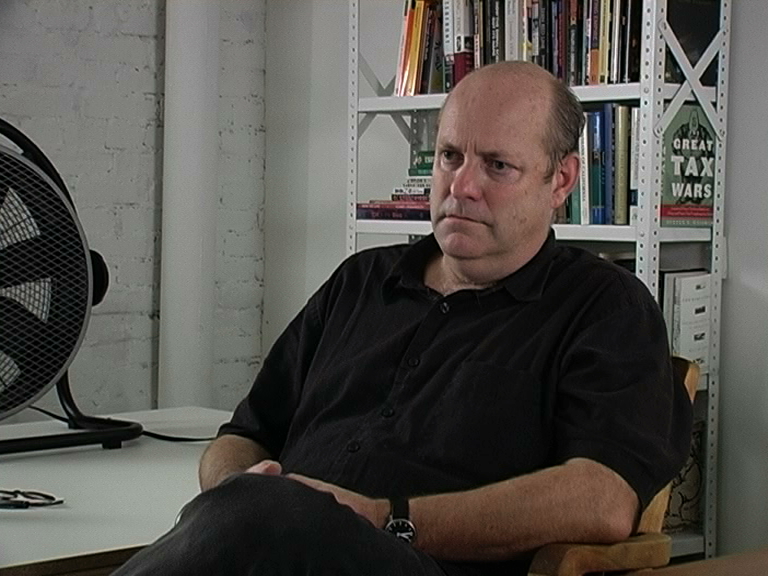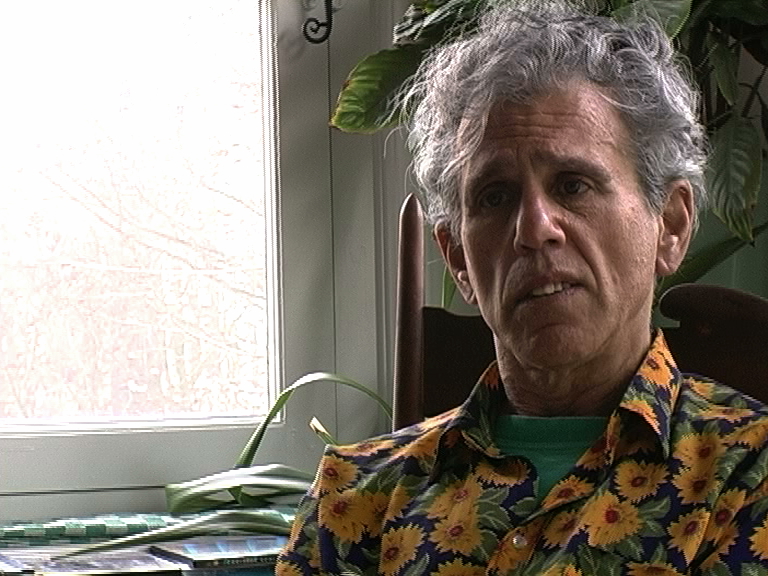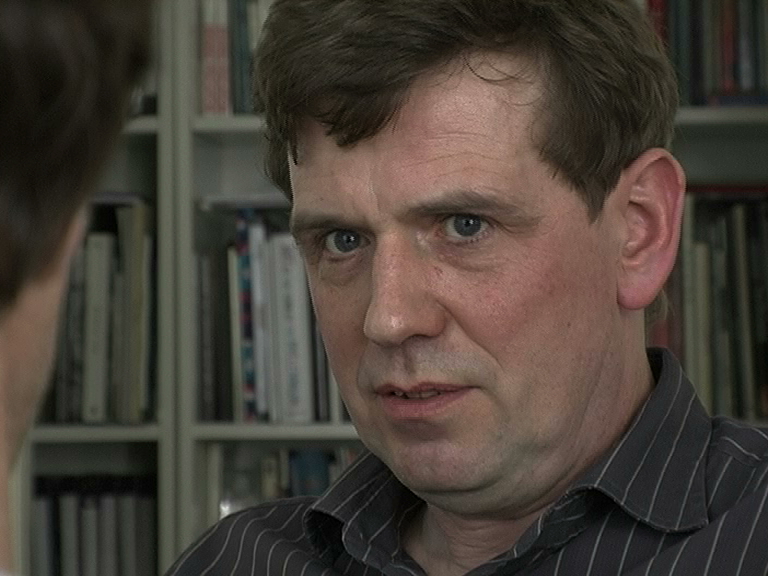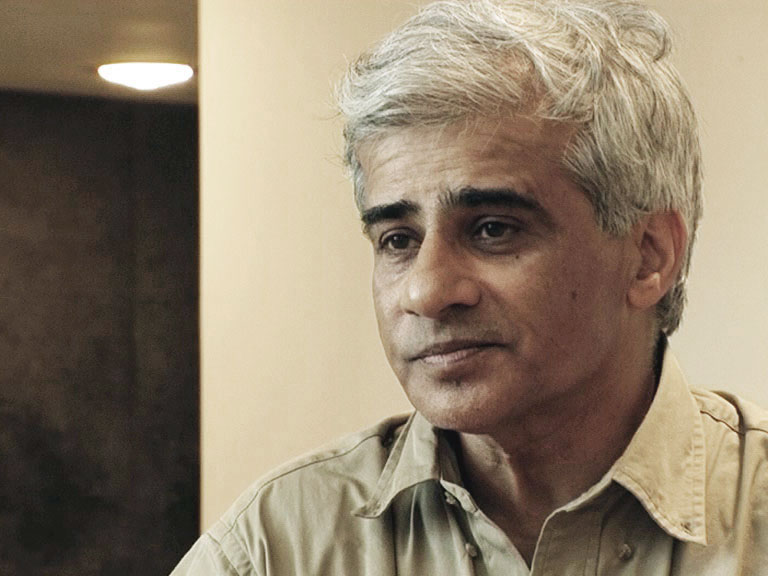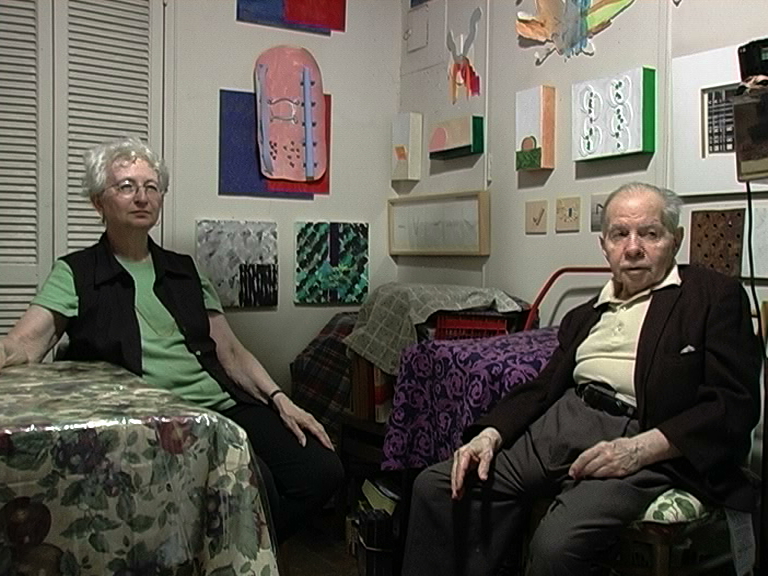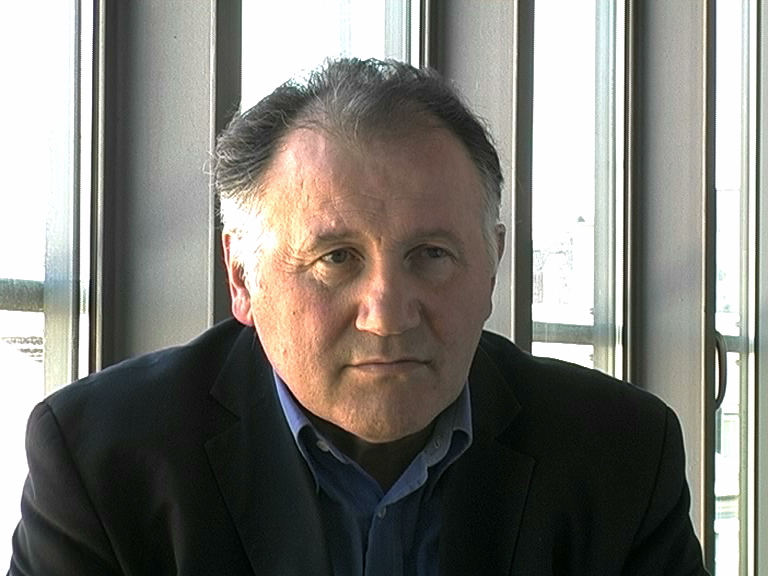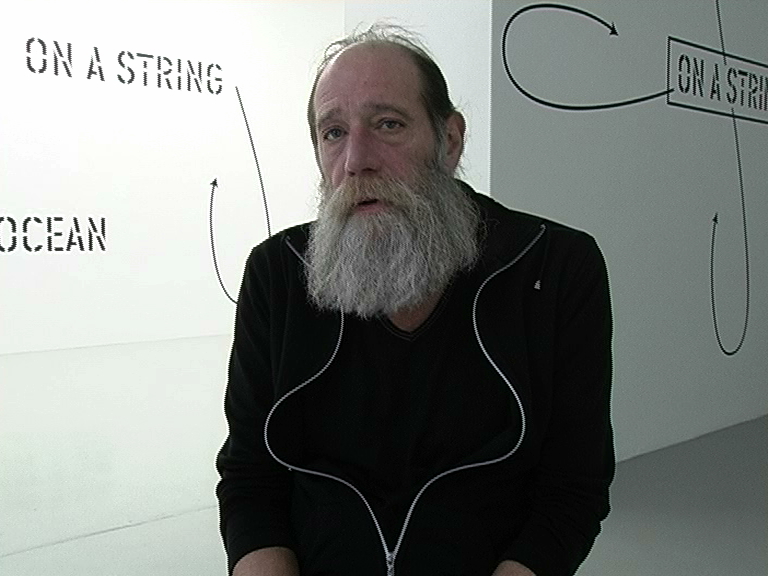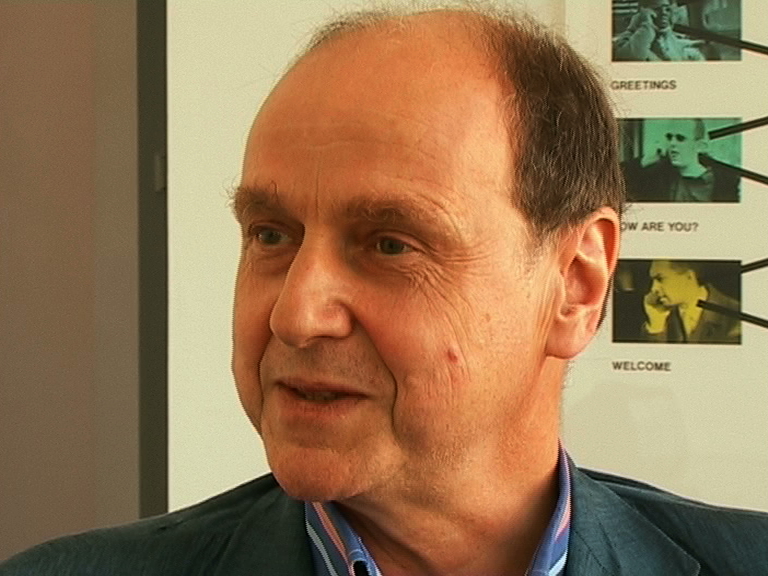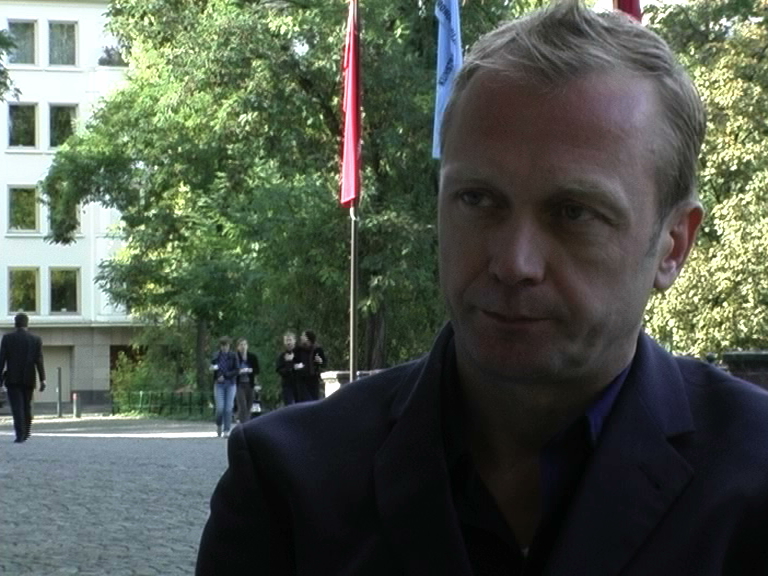S.R.: Is it media art, or do you focus on issues?
S.K.: I think I’m focusing more and more on issues with an extreme – and when I say „extreme“ I mean very conscientious – awareness of not trying to let the issue part of it go out of sync with the intuitive process. So because I know that my work stems very much from a reliance on the intuitive process of what the emotional impetus is which takes it forward.
S.R.: What do you think, what is your strongest influence?
S.K.: I think the everyday experience, in the sense of the everydayness, the everydayness of things and how we deal with it. For the moment it’s that. For a while ago it was perhaps things which were a bit more arising from one‘s own oppressive involvement with oneself. But I think it’s moving a bit away from that now. I’m able to have a slightly more stoic view on the daily process of living for myself and others, but even looking at others is often a way of looking into your own head. I would like to, you know, when people talk about the inner world and the outer world, and not that there is a difference. But you can talk about one or the other. For me, the smaller, the inner world really reflects the outer. And I don’t have any problems if I’m not always talking about issues which are key issues in the world at the moment, because I think it’s all connected, and I like to stem from the grass root.
S.R.: What do you conceive as your favorite practice in the history of art, if there is one?
S.K.: That’s a bit difficult to define. I think all those moments where things got completely disturbed and moved to the next. Those moments are of great value. In that way for me there is perhaps a larger degree of interest in the feminist art practice. Because I think it was also then addressing a lot of larger issues, even as stemmed in America also maybe, because you can always look at that as an example. A lot of what was happening in the 90s was very interesting.
S.R.: Because of the sound level, can you say the last two sentences again?
S.K.: Can you ask the question again?
S.R.: What is your favorite practice in the history of art?
S.K.: Okay, I’ll answer it in a different way now. It keeps changing, but if I have to say what I have been loyal to in my affection more consistently, then I think it is the moment where the flux happens, the moment of flux within changes in art practice. Where things are radicalized or movements are discarded and others are adopted. And within this, I think, the feminist art practice is something which draws my attention perhaps to a slightly larger degree because that becomes the point from where I can start to understand identify other things.
S.R.: What is your aim with your practice?
S.K.: No, I don’t think I can talk about my practice in terms of an aim. Because the moment you start to speak it starts to sound like some kind of high moral grounds or spiritual grounds. But in fact it’s a combination of all of these – minus the word “high”, but it’s trying to get a better understanding of yourself.
S.R.: When did you hear for the first time something about Conceptual art or intellectual processes in art?
S.K.: I think I was being aware of terms like intellectual processes, or I have been aware of these terms by growing up. My father was a trade unionist and a very idealistic person, and, of course, those notions were limited more to social commitment etc., and I wasn’t so aware of how they make their roots into the world of art. The other part – you ask me about Conceptual art – I think these are more like, unfortunately with the kind of art education we had, these were more like terms which were spoken of, but not in classroom. They only started to make sense with a better understanding of one’s own practice. And that meant also freeing oneself from a lot of what one had learned, so it had been a slow process. I’m not very sure if I totally comprehend it even now Conceptual art. But I do like the idea of Global Conceptualism much more than the way it was in the 60s in America.
S.R.: Do you think that the conceptual paradigms are still in function?
S.K.: That’s one thing which really not bothers me, but it occupies me because that’s an interesting framing of question because I don’t think they are contained paradigms any more. They are fluctuating to a great degree. If I get your question right.
S.R.: Do you think it‘s possible to renew conceptual paradigms as, for example, feminist identity issues, body issues, kind of specific media issues, do you think it‘s possible to find a new conceptual approach?
S.K.: I’m not sure if there is a need for that. Because if you say, is it possible to renew? Then it implies that what’s existing is either completely exhausted or the relevance has moved. Now, the relevance never moves away. It’s different in different parts of the world. We are still dealing very much with issues of feminism, which maybe perhaps in the US or some of the Western world is done with a long time ago. So it’s not as if there is a set of problematics which has been dealt with and then it’s okay. And it’s never exhausted. Rather than saying “renewed”, I would say it can be expanded. In that sense, I think it is of course possible, and it’s very necessary to keep expanding and to insist on their relevance. For instance, when I started to think seriously of the framing or the historicity of what I was doing – and this was when I was studying in England – somehow making work which was about the body or issues like that seemed to others or those who were in a way instructing us, it seemed a bit – not to all of them, but to some of them – it seemed passé as a subject matter. And ironically, at that moment, what was really trendy was really cool formalistic painting for that time. But I don’t think, I mean if it is really stemming from an inner need, which also then stems from the world. Something which is coming from a felt need in a large part of the world. And I don’t see why this has to take a back seat. Those issues still have relevance.
Does that answer your question?
S.R.: Yes, sure.
S.K.: I wish you were responding a bit more. You are more camera conscious than I am.
S.R.: There is only one more question that is interesting for me. It focuses more on the production processes. How would you describe your typical daily work as an artist? Do you have a projection of an ideal situation?
S.K.: A really honest answer of that is that I, most of us, because of the kind of worlds we live in, where production, even on the level of conceptualizing, production of ideas, not physical material things, has so much to do with what possibilities or facilities we have. So, what I do is, I just keep, I grab an opportunity when I get it. Sometimes even mindlessly starting to implement those ideas. Now I’m quite comfortable with the fact that, okay, these are then long periods of gestation of ideas, when things cannot be done because you don’t have the resources. And when you are working on your other personas of being your own art manager, finding a residency, writing applications; and when that happens, then you have to throw yourself in. So, unfortunately, that completely topples this other view of the artist being this meditative person who goes into a space and spends a few hours, which would be great. And when there are those moments, we should also grab those. But I don’t think that’s really consistently possible in today’s world. Not for me, not for people who are trying to make it in the larger understanding of things and without any resources.
S.R.: At the beginning of your answer there was a sound. Can you say it again?
S.K.: I’ve forgotten what I said… Can you ask me the question again?
S.R.: How would you describe your typical daily work as an artist. Is there something like an ideal situation?
S.K.: I wish I could say that there was an ideal situation, which included things like the meditative part of the practice or a consistency in how once working time or practice time was divided. But in fact I have to say that it’s not so, for me, at least. I don’t know what I said. Ask me some more, I’m enjoying this.
S.R.: Do you think that you want to say something more to any of these points?
S.K.: No, I’m thinking from the top of my head. Because I’m at the moment very involved with the problems my installation is facing. So maybe later I’ll be able to internalize and think of what you were asking. Now I‘m on a surface level.
S.R.: It‘s fine… It seems very important to have different views.
S.K.: So, the camera is off? I can ask you: I was interested in the project because I was really wanting at that moment, you know when Amit [Mukhopadhyay] was proposing this project in Delhi, I felt at that moment that I really need to integrate my own paradigms and I wanted to enter that area. But I felt somehow, I’m not saying this is a victim thing, but I felt disincluded simply by not being seen as somebody who is involved, and that brought within me this whole argument about… It’s not as if you are working about yourself is detrimental or in opposition with working in a public pace. This is also connected to a bit of Nancy’s lecture yesterday and the point you raised about aim, about what the aim should be.
Yes, if there is an aim, which is of course a very big question. But then this whole thing also of, where does the self stand and why should that be seen as a more isolated entity within this larger thing? For instance talking about globalization, there is a certain coinage which is being used, of course the paradigms are quite… Am I making sense?
S.R.: I‘m not sure what you want to say. You were thinking of the thing taht Amit was organizing? And you wanted to contribute something to the discussion about public sphere?
S.K.: To the discussion, also the practice of it. Because discussion can be just that one day, and you’ll not be able to speak at that moment. But I somehow felt that there are already markers of who can be involved in that practice or what should your attitude be. And somehow an attitude of using yourself as your source or work that stems from the self doesn’t seem to be seen as something which fits in. For me that‘s a very big problem and I’m trying to connect it again to Nancy’s discussion yesterday. Because it was again focusing on agency and the fact that people have to create their own context, and therefore I feel people are creating – what I said yesterday was, in order to be able to step out in public – the legitimization in our part of the world is only seen as if it is done in the sense of development and social issues, and that becomes a little dubious to me. This combined with the fact that already even within art practices or people who want to do projects, there is already this kind of distance from trying to understand it in a larger sense. So you know, it becomes like a topic, so you are talking about globalization, for instance.
S.R.: Thank you very much.




